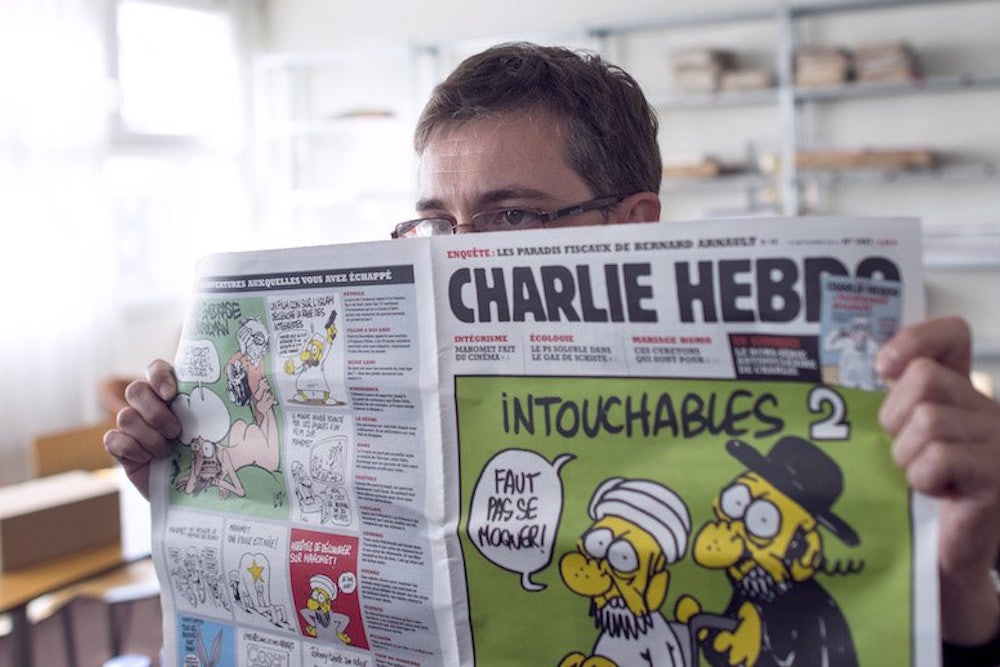Americans have long studied up on how to eat like the French, dress like the French, have sex like the French, and most recently not have sex like the French. But one aspect of French culture Americans still struggle to understand is their political satire. Satirical, sometimes slanderous cartoons have occupied an important place in French politics for centuries; Charlie Hebdo, the controversial French humor magazine whose offices were attacked on Wednesday, carried on that legacy.
“It’s an old tradition of French satire to be particularly obscene and vulgar,” says Arthur Goldhammer, a French translator based at Harvard’s Center for European Studies. It “goes back to the days before the French revolution,” he says, “when the monarchy was mocked” in demeaning, even pornographic cartoons. Historians have argued that cartoonists’ undignified depictions of French royals in the eighteenth century lessened the prestige of the monarchy, helping pave the way for revolution.
There’s nothing quite like Charlie Hebdo in America. For better or worse, American humorists are more tightly constrained by the boundaries of political correctness; comedians are generally expected to take special precautions when joking about anything potentially sensitive, especially surrounding issues like race, religion or gender. “People have compared it to Jon Stewart, and it is as popular as something like that, but it’s also much more radical,” says Canadian journalist Jeet Heer, co-editor of Arguing Comics: Literary Masters on a Popular Medium.
As if to underline this contrast, American news outlets like CNN and AP have opted not to show Charlie Hebdo’s most controversial cartoons, and even The New York Daily News blurred out parts of the images. Arguably, the most controversial political cartoon of the past few years in the U.S. was a New Yorker cover showing Barack and Michelle Obama plotting a terrorist attack in the Oval Office (an artist’s attempt at satirizing Republicans who questioned Obama’s patriotism.) Compare that to the 2011 Charlie Hebdo cartoon in which God is sodomized by Jesus, and the Obama cover seems mild.
Even in the French context, Charlie Hebdo was on the fringe. The magazine was founded in the 1960s, and “the rebellious spirit of [60s] Paris” remained “a big part of its identity,” according to Heer. In 2006, then-president Jacques Chirac scolded its editors for “overt provocation.” It’s “more in the nature of an underground newspaper,” says Goldhammer. “It permits itself liberties that other newspapers wouldn’t take.”
